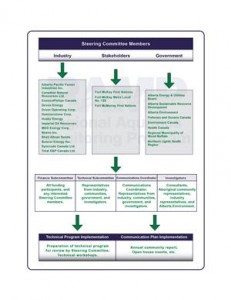From the wonderful folks at the Save the Census Campaign
(I particularly giggled at the Stevie Cutie one, what would Ertha Kitt say!)
Reinstate the Long Form Census
to the tune of “Deck the Halls”
Reinstate the Long Form Census,
Fa la la la la la la la
Its demise is really senseless,
Fa la la la la la la la
Give us back this vital data
Fa la la la la la la la
Bring it back right now, not later.
Fa la la la la la la la.
Hear the raging statisticians
Fa la la la la la la la
Stating all our hopes and wishes
Fa la la la la la la la
Many groups across our nation
Fa la la la la la la la
Join to stop this devastation
Fa la la la la la la la
Those from lower social classes
Fa la la la la la la la
Fear the new one will bypass us
Fa la la la la la la la
Sing we now in protestation
Fa la la la la la la la
Speaking out to save our nation
Fa la la la la la la la!
Hark the Statisticians Sing
to the tune of ‘Hark the Herald Angels Sing’
Hark the Statisticians sing
Give us back that census thing
Don’t destroy the data source
That we use to chart our course.
Joyful if it is returned
From its data much we’ve learned
It has been around since when
Christ was born in Bethlehem.
Hark the Statisticians sing
Don’t listen to the far right wing!
Many want it now restored
Province, village, town and Board
Rural, urban, poor and rich,
Think to lose it is a shame
Cancelled almost secretly
For no reason clear to see
Many mourn this tragic loss
Blaming Harper – he’s the boss!
Hark, the statisticians sing
Please reinstate the Census thing!
Census Forms
to the tune of ‘Jingle Bells’
Filling out the form
On a long form census day
Takes ‘bout half an hour
Glad to have my say
Don’t find it intrudes
Isn’t worth the fuss
The information it provides
Benefits all of us
Census forms, census forms
Glad to have my say!
It’s a thing we really need
Bring back our census day!
Census forms, census forms
Glad to have our say
It’s a part of Canada
Please don’t take it away!
Need the whole long form
More than a survey
Counts us every one
No one goes astray
Things that we all need
The census helps us get
If we can just volunteer
Some needs will go unmet.
Census forms, census forms
Glad to have my say
It’s a part of Canada
Please don’t take it away!
Stevie Baby
to the tune of “Santa Baby”
Stevie Baby, just slip a census under the tree, for me.
Been an awful good count,
Stevie Baby, so make it mandatory again.
Stevie Baby, a data source that we know is true — like you!
We’ll wait till it returns,
Stevie baby, so make it mandatory again.
Though its now your nemesis
Think of all the fellas that it’s gonna miss
Next year could be twice as good,
If you’d restore the Census list!
Stevie baby
We want a count on which we can count — a fount.
Information we need, Stevie baby,
So make it mandatory again.
Stevie honey
One little thing we really need, indeed.
Data that we can mine, Stevie Baby,
So make it mandatory again.
Stevie cutie
Don’t think this is one little thing – we sing!
Sign your x on the line, Stevie cutie,
And make it mandatory again.
Please maintain this data source
With some gentle suasion, just to reinforce.
You don’t need to keep jail time
Make it just a minor crime!
Stevie baby
Won’t complete your “Household Survey” – no way!
It’s a failed substitute,
Stevie baby, so make it mandatory again.
Make it mandatory again
Tory, tonight!
We Need a Long Form Census
to the tune “We Need a Little Christmas” from ‘Mame’
Please stop this folly
Bring back the form before you hurt our nation more
Fill out the questions
We may be losing things we never missed before now
Cause we need the long form Census
Right this very minute
Joyous statisticians, data without limits
Yes we need the long form census
Right this very minute
Its cancellation caused a flurry
That Stephen Harper makes us worry
So climb off your high horse
Reverse the dumbest thing we’ve seen you do in years
Don’t be a fruitcake
It’s time you faced the facts, to public pressure please bow!
For we’ve grown a little smarter
Grown a little older
Grown a lot more vocal
Grown a whole lot bolder
And we need a lot more data
‘Bout every householder.
We need the long form census now!
Good King Censusless
to the tune of “Good King Wenceslas”
Good King Censusless looked out
On the cottage season.
With the sunshine all about
Warm and crisp and even.
Everyone was drinking beer
Feeling great elation.
How could he disrupt the cheer
breaking cross the nation?
“Mr Clement, good MP,
If you knowst it, telling,
Yonder voter, who is he
Tory ranks not swelling?”
“Sire, a man I once knew long
Loathed the census taking
If you could remove this wrong
You’d be nation-making.”
“Make it so”, he said at once
With no consultation,
“Though I may be thought a dunce
Causing consternation.”
Statistician would not toast
His part in this madness.
He would rather quit his post
Causing him much sadness.
Harper bellowed “What a fool!
Get that man to focus!
He should know that math’s not cool,
Stats are hocus pocus.”
Statistician stood his ground
In the public’s favour.
He said he was honour-bound;
People thought him braver.
“Bring me hatchets, bring me fire,
We shall burn his cabin!
He’s earned my unholy ire!
He won’t know what happened!”
Steve and Tony, off they trod,
Off they trod together
Feeling stormy, yet instead
Of the sunny weather.
Statistician’s cabin burned
To the ground next morning.
Steve and Tony have not learned,
Though this be a warning:
Cabin dwellers all be sure
Be you all accounted,
Those who cannot count the poor
Can’t themselves be counted.



Comments on Posts